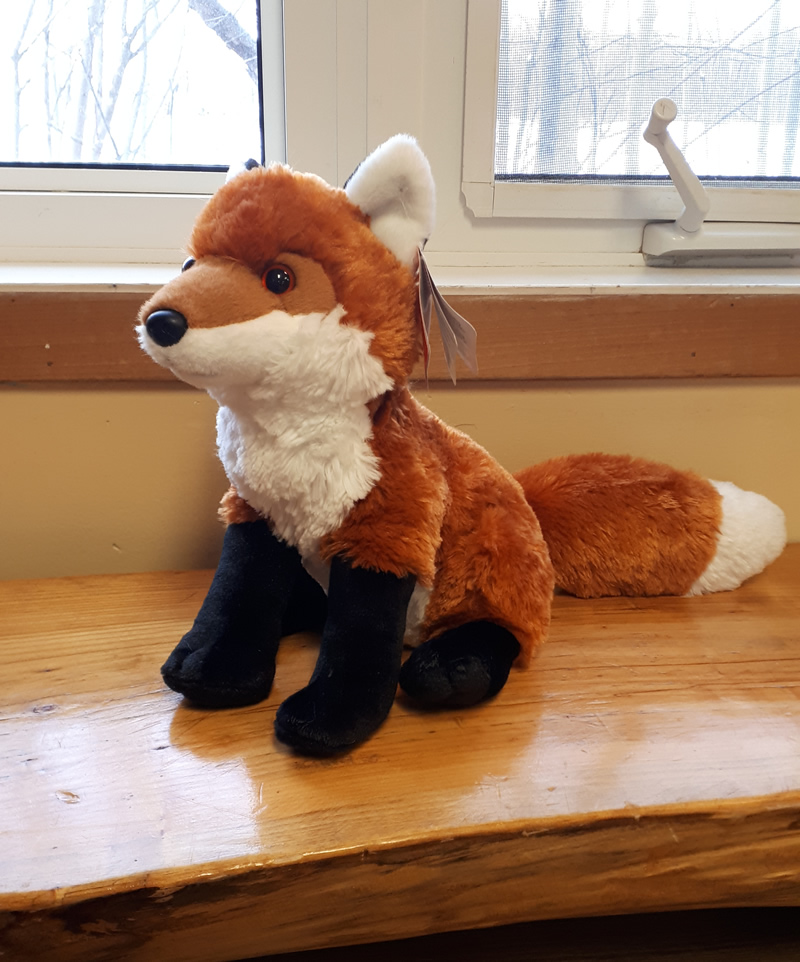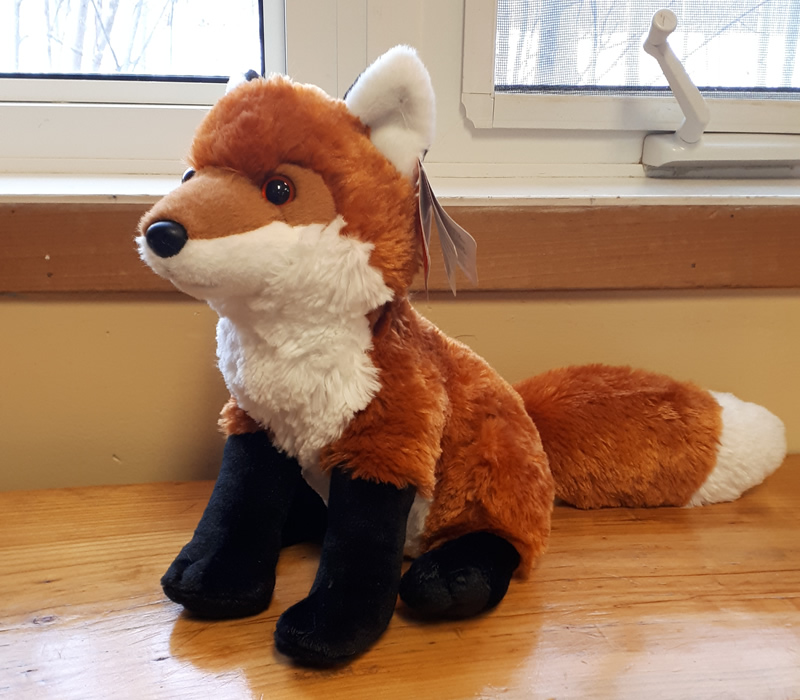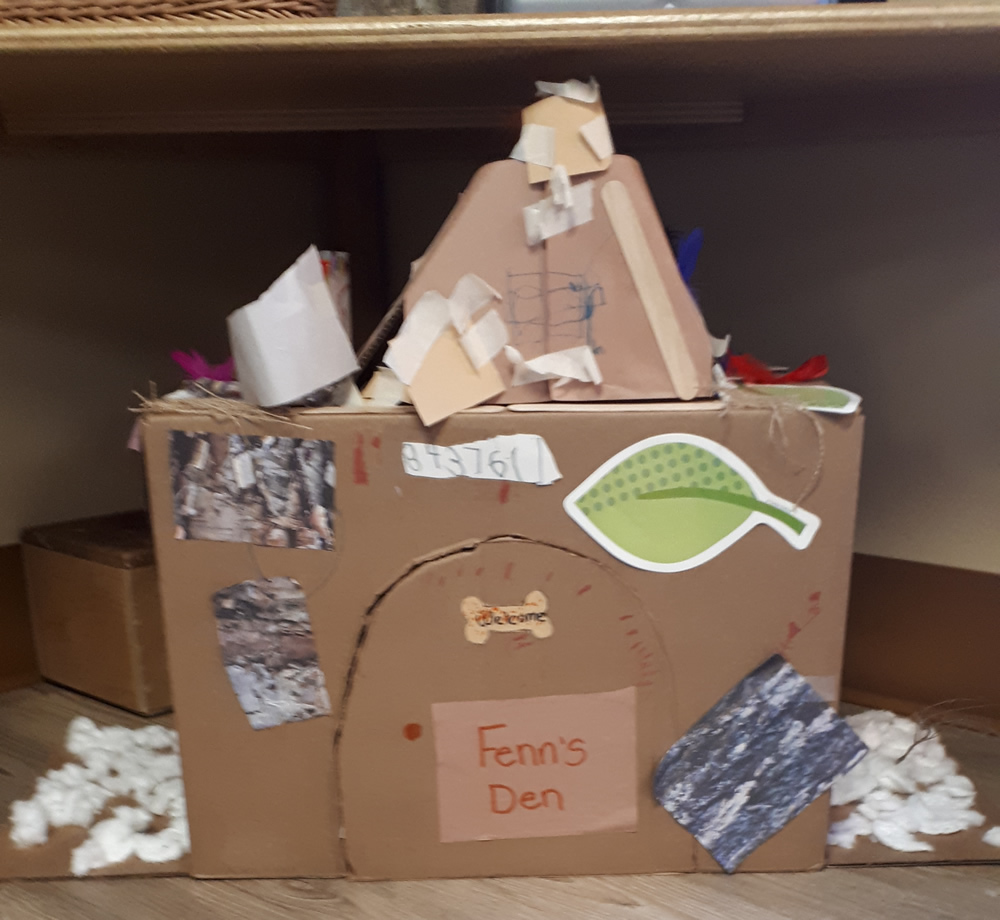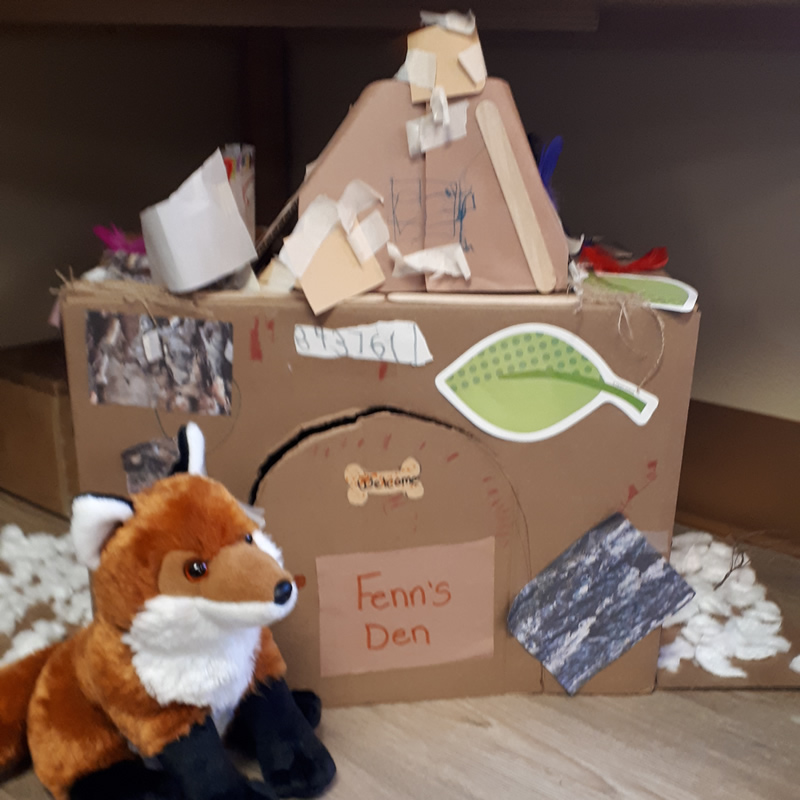I was inspired to share a recent experience that I had while observing children engaged in playful learning experiences in our kindergarten program. I am always amazed at the lessons we can learn about ourselves when we are co-learning with children. I am always amazed at the lessons about life and the world we hope to create when we listen to and notice the wisdom that children innately have to offer us. In this experience I noticed how the children naturally exhibited what we grownups call democracy. This experience had me reflecting on the dispositions we wish to model for our children and how children have so much to teach us; if we really pay attention!
N.E.: “I really want to have a turn with Fenn.” (Fenn is a stuffed fox that the classroom received as a gift from a family)
A.L.: “Well…I’m using it and I still need a lot of turns.”
H.H.W: “Hey guys, I know that A has had Fenn since we got him yesterday and N hasn’t had any turns yet. I wonder how that makes N feel. What do you think we should do?”
What I Observed: The children all went back and forth with their opinions, shared their perspectives, conflicted about the facts, negotiated with each other, disagreed, and sat in silence together. This took about 20 minutes. Children stepped up to advocate for those who they felt were not being treated “fairly.” They remained silent and poised while others were sharing their opinions. Reflected back what they heard, asked for clarification, and used each other’s new ideas to shift their own ideas. They were reflective, they were respectful but frustrated, and ultimately they chose to go in the direction of the majority and came to a decision that ensured each child was given adequate time with this new and novel addition of “Fenn” Into the classroom. At this moment, I saw a child-led democratic classroom without any guidance or support from an adult. I was pondering about democracy and how we always pride ourselves on creating conditions for children to exist within a democratic classroom and I realized in this moment that children already know so much about democracy and how we might in fact learn more about what true democracy is.
In this moment, I felt compelled to speak and then I reflected further on some of the goals we say we have for children. I was currently enrolled in a course with Tom Hobson titled “Talking with Children so They Can Think.” We were encouraged to think critically about the language we use with children and the ways in which we often take over when children are engaged in conflict as a means to resolve and move on and how this might be counterproductive to the goals of conflict resolution, critical thinking, and problem solving that we have for young children. This had me thinking about the ways we may be robbing children of the opportunities to truly learn how to problem solve or think critically by stepping in and taking over to resolve issues when children are moving through conflict with others.
Of course, I am not saying to sit back and watch as children are victims of bullying or other acts of less prosocial behaviour. But I am asking myself, what might it mean for children if we as educators grew a little more comfortable with allowing children to sit and move through conflict? How might we become allies as a person to bounce ideas off of and think with together versus a person a child runs to in order to merely solve a problem for them?
What kind of world do we want children to be a part of and how might these daily social interactions play into the world that we are a part of co-creating?
I pride myself as a person who sees children as competent, capable, fully formed humans and I am constantly asking myself: “So what does this look like in practice when working alongside young children?” Although topically, this might seem infinitesimal conversation but the pedagogy of language and the way we speak with children daily is a reflection of the image we have of children, what they deserve, and the future they will be a part of creating. I was excited to share this observation with Chelsa and begin to hear her perspectives on the pedagogy of language. Something I have learned immensely since my time working alongside the Kinder program is this pedagogy of language. I see how Chelsa remains responsive, available, and ready to support children while offering the children time and space to take risks and solve problems. We all know that she will be there for us when we do fall but the way language is used to encourage the children to think about their problems has been beautiful to bear witness to. This brings me back to my original anecdote from the children. When I read back what I noticed about the children; it breathes into this pedagogy of language and the impact that this has on the way children learn and explore these social dynamics of childhood.
How might a child move differently through the world if they have been offered safe and secure spaces to work through these conflict resolution skills?
As we see the ever evolving and unpredictable world that we are a part of right now; it has me thinking about the world our children might be inheriting. What sort of problem solving and critical thinking strategies might these adults of tomorrow require and how might our work with them today influence who they are in the future? When I reflect back on this anecdote of the time I spent with the kindergarten children; I feel relief and pride, and I wonder if they might have a greater understanding of democracy than I first thought. It also made me think about the conditions we have a responsibility to create so that children can continue to see themselves as active, democratic community makers.




